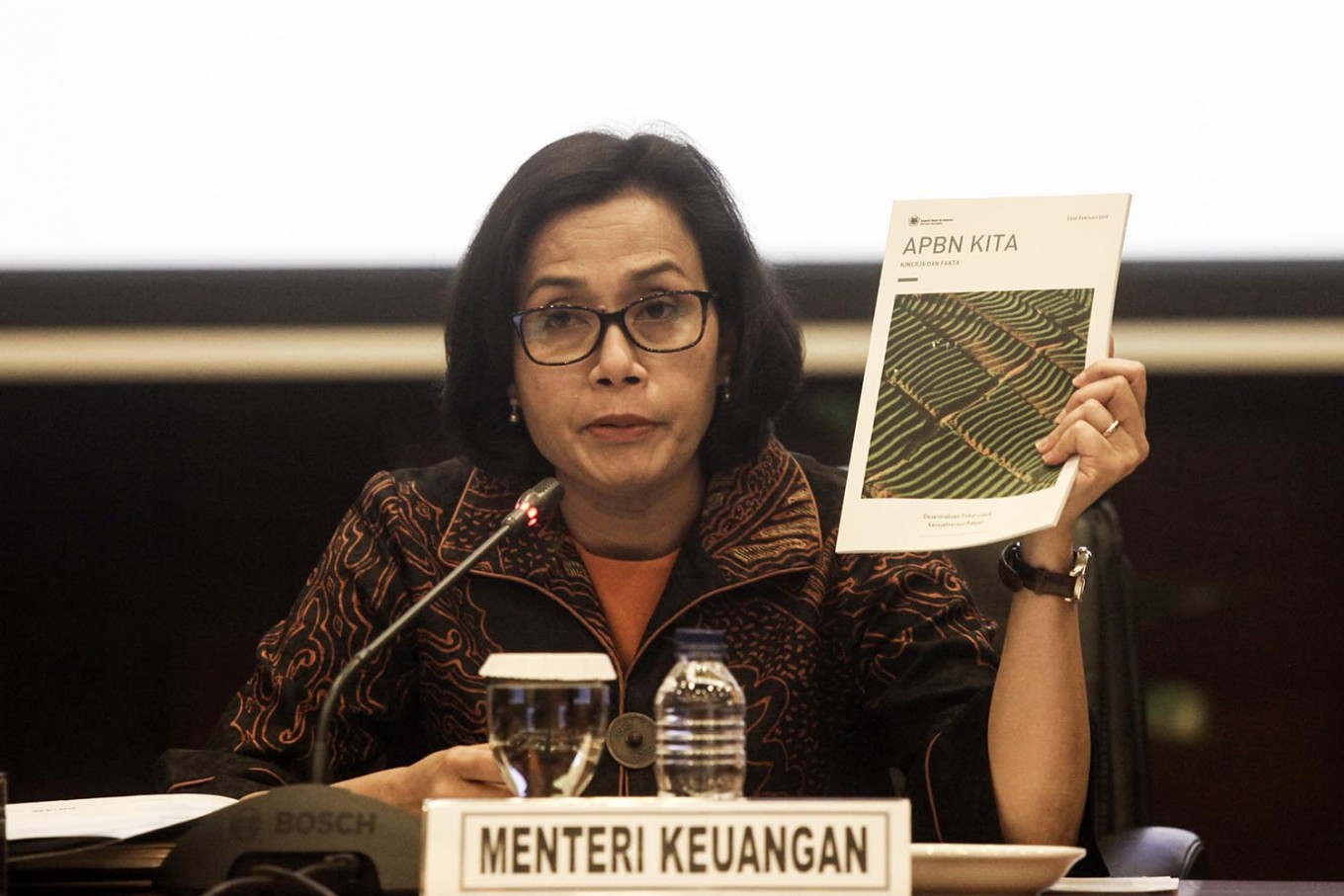Popular Reads
Top Results
Can't find what you're looking for?
View all search resultsPopular Reads
Top Results
Can't find what you're looking for?
View all search resultsEDITORIAL: Tightening budgetary discipline
Given the vital need for smooth budget implementation, Sri Mulyani made budget preparation her top priority when she took over the Finance Ministry in 2005.
Change text size
Gift Premium Articles
to Anyone
T
hat Finance Minister Sri Mulyani Indrawati publicly expressed her outrage on Wednesday upon learning that ministries and government agencies made revisions to 52,400 budget authorization documents or spending warrants last year, reflects her great concern over the urgent need to speed up the budget implementation.
We fully support her threat that starting next year ministries and other central government agencies that are found to be the worst performers in budget planning and execution would be subject to heavy penalties or even liable to cuts in budget appropriations.
The revision of budget spending warrants not only reflects slipshod planning, but also slows down budget execution, thereby delaying the injection of liquidity into the economy.
The trend is more worrisome because the revisions to budget spending were requested by ministries and other central government agencies whose budget planning capacity should be better than the regional administrations’.
Yet more damaging is that delayed budget spending also causes losses to the government and wastes taxpayers’ money, because about 20 percent of the state budget is financed by government bonds. Any delays in spending means wasting taxpayers’ money because the government has to pay the interest on the bonds even when the proceeds of the bond issuance sit idly in the central bank.
Since government funds in the central bank are derived from tax collection, dividends from state companies and the sale of government bonds, the idle cash reserves cause monetary contraction or decreased liquidity in the economy, consequently slowing economic growth.
Given the vital need for smooth budget implementation, Sri Mulyani made budget preparation her top priority when she took over the Finance Ministry in 2005.
Her determination led to significant progress when the government for the first time was able to deliver in the third week of December 2011 budget spending documents to ministries and regional administrations for the 2012 fiscal year. Previously, budget authorization documents were delivered only at the beginning of the fiscal year in January, two months after the state budget was approved by the House of Representatives.
Before 2012, the cycle of budget spending for investment and procurement started slowly in March, then accelerated toward the end of the year, thereby causing an adverse cycle at the expense of the quality of public spending.
A difference of three to four weeks may seem insignificant, but that could mean a great deal, at least psychologically, because such a move reflects the President’s sense of urgency in speeding up the implementation of public-sector investment projects.
For the current fiscal year, for example, budget spending warrants were delivered in the first week of last December, thereby allowing ministries and agencies to immediately prepare auctions for the procurement of goods or services early in January.
Quick and efficient budget disbursement is imperative and more urgent now, not only because we must speed up infrastructure development, but also because the economy relies significantly on public sector investment.








